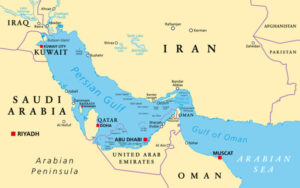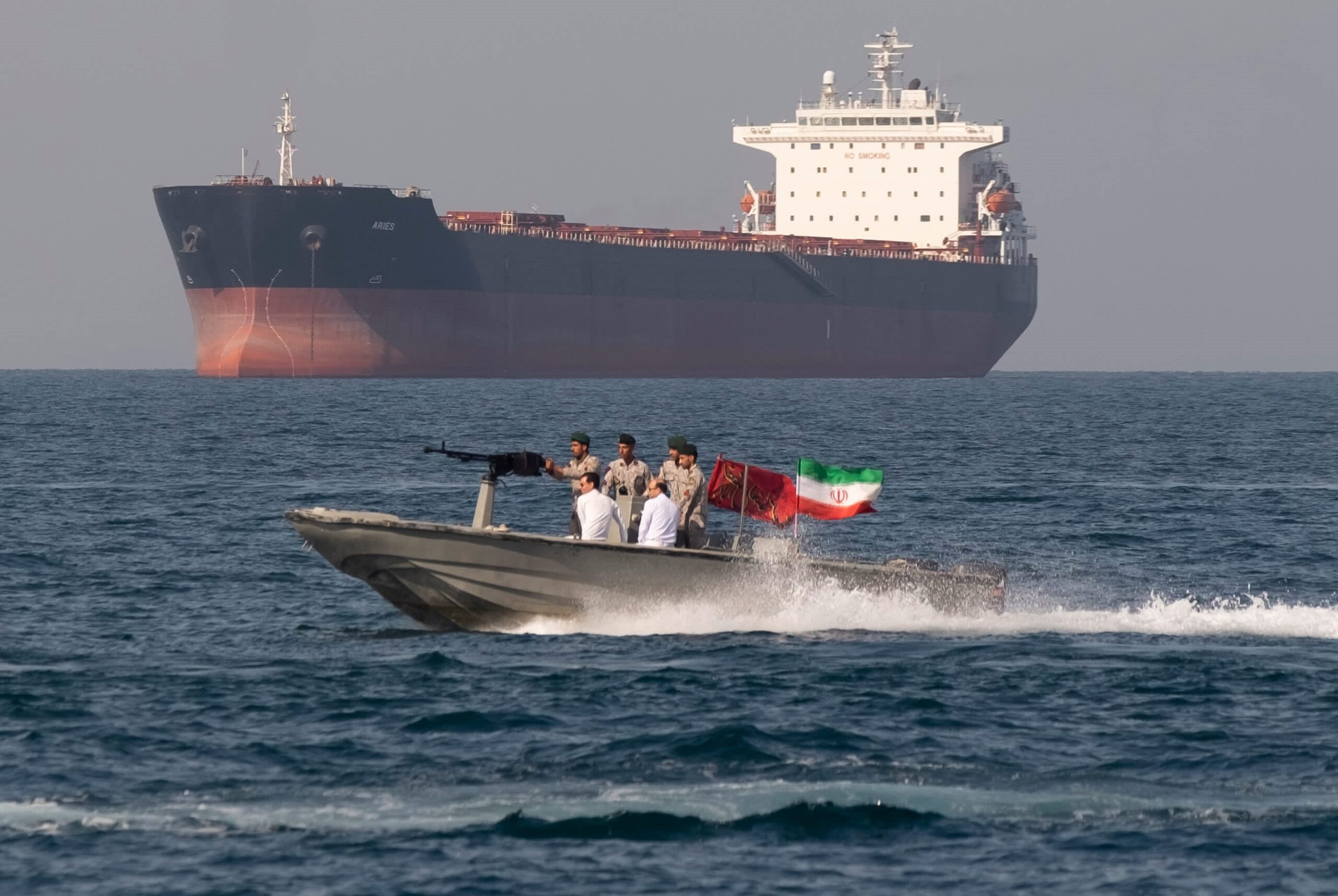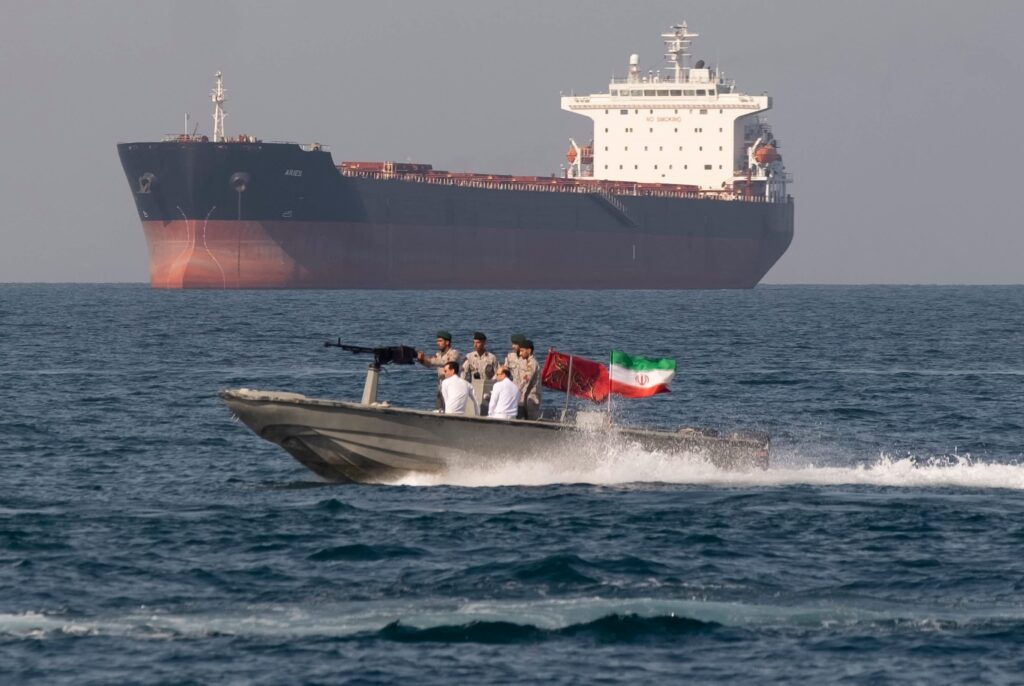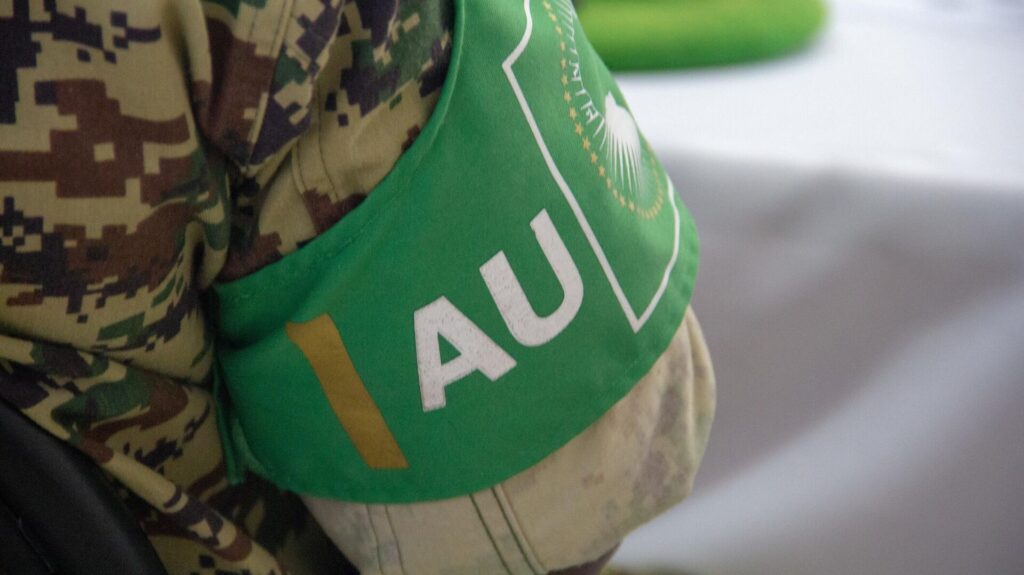As tensions with Iran escalate, the Strait of Hormuz has become a flashpoint
where global energy, military power and international law converge.
As the recent U.S. strikes on Iranian nuclear sites continue to send shockwaves around the world, attention is once again fixed on one of the most vital and vulnerable maritime chokepoints: the Strait of Hormuz.
This narrow waterway, just 90 miles long and barely 21 miles wide at its narrowest point, lies between Iran and Oman, connecting the Persian Gulf to the Arabian Sea. It carries nearly a quarter of the world’s oil exports and about 20 percent of global liquefied natural gas shipments. A disruption here could spark a global energy crisis and deepen an already dangerous military standoff.
At the center of this maritime flashpoint is not just military power, but Iran’s selective interpretation of the landmark UN Convention on the Law of the Sea (UNCLOS), the international treaty that governs how countries use and share the world’s oceans.
Here’s why this vital sea passage — and the legal framework that governs it — is making waves.
A Complex Legal Dance
UNCLOS, adopted in 1982, is often described as the “constitution of the oceans.” It sets rules for territorial waters, exclusive economic zones where countries can claim resource rights and how ships may pass through vital international waterways. Most nations — including U.S. allies — have signed and ratified it. 
Iran ratified UNCLOS in 1996, accepting provisions like the 12-nautical mile limit on its territorial sea (the areas closest to its coasts). Iran, however, takes a selective approach to adherence. For example, while it allows innocent passage — meaning foreign ships can pass through its territorial waters so long as they don’t threaten peace and security — it rejects other stipulations like the concept of transit passage. That’s the UNCLOS rule that guarantees ships, including military vessels, can move freely through international straits like Hormuz without needing prior permission. Instead, Tehran demands advance approval for military ships — a position most of the world sees as an attempt to control this crucial chokepoint in defiance of international law.
It’s important to note that while the U.S. fiercely defends freedom of navigation and relies on UNCLOS principles to challenge Iran’s stance, it has never ratified the treaty. Rather, the U.S. follows UNCLOS as “customary international law” — rules so widely accepted that they’re considered binding even without formal agreement.
The Global Fallout of Closure
In response to the U.S. bombing of nuclear facilities at Fordow, Natanz and Isfahan, Iranian officials alluded to plans to mine the Strait of Hormuz in retaliation. In simple terms, mining means scattering explosive devices underwater to block or destroy passing ships. Such an action would violate UNCLOS, which prohibits countries from obstructing straits used for international navigation and could justify military action by other nations under the right of self-defense.
For the U.S. and its allies, this would be a catastrophic scenario. The U.S. Navy has already begun repositioning forces to ensure they aren’t boxed in if Iran tries to close the strait. If mines are laid, clearing them would take weeks, cost millions and expose U.S. sailors and allied forces to attack.
And the economic consequences? Severe. Oil prices would spike, hitting Asian economies especially hard — but American consumers would also feel the pain through higher prices at the gas pump and soaring energy bills. Ironically, closing the strait would also choke off Iran’s own oil exports, making it a self-destructive move likened by one expert to a “suicide bombing” of the global economy.
What UNCLOS Can — and Can’t — Do Now
On paper, UNCLOS provides clear rules to keep vital straits open — even during conflict. But in practice, it relies on countries’ willingness to follow those rules. That’s because it doesn’t have its own enforcement power. Iran’s selective compliance leaves the door open to dangerous brinkmanship.
As the world watches, the stakes could not be higher: for Iran, for the United States and for the global economy.




